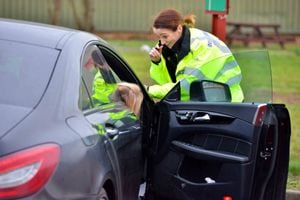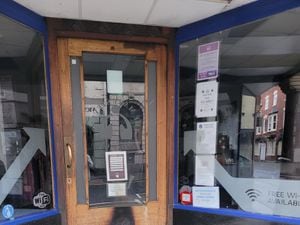How police are trialling education in bid to stop dangerous drivers
Dangerous drivers are being shown the error of their ways through a pioneering rehabilitation course aimed at making the roads safer.

Persistent offenders who have been caught drink-driving or acting dangerously at the wheel can now take part in the educational course offered in conjunction with West Mercia Police to try to ensure they change their ways and don't come to the attention of traffic officers again – and stay out of jail.
Thanks to a boom in dash-cam technology over recent years police now have more evidence of dangerous driving at their disposal than ever before, allowing them to target the most serious offenders.
Incidents reported to police by the public through Nextbase’s National Dash-Cam Safety Portal (NDCSP) have been responsible for more than half of the drivers who have taken part in the Making our Roads Safer for Everyone (Morse) course since launching two years ago.
There's a feeling among police chiefs that while fines, points and, in the most serious cases, prison sentences can act as a deterrent, the worst driving offenders will continue to act dangerously behind the wheel without proper intervention.
It has resulted in a partnership between West Mercia Police, whose force area includes Worcestershire and Shropshire, and dash-cam company Nextbase, which aims to seek out those putting other motorists at risk on the roads and, rather than just punish them, educate them about the potential impact of their actions and support them if they are struggling with issues in their lives.
The force area is the first in the country to provide the dangerous driving rehabilitation courses and it's hoped others such as West Midlands Police will do the same. It is funded through the Police and Crime Commissioner's office but officers have no involvement in the running of the course, which is left to the fire service and support service YSS.
Rather than moving to lambast the drivers for their actions, they are initially treated with kid gloves in an effort to persuade them to co-operate.
Police chiefs are keen to ensure those taking part do not feel they will be tracked and monitored by officers once they leave, with details kept confidential unless there is deemed to be a serious risk to the public.
Pc Lee Barton, from West Mercia Police, said the focus, first and foremost, was ensuring people struggling with problems in their lives are offered support.
He said: "We get some intelligence about people driving on our roads, drink-drivers constantly on the roads, taking their kids to school. The police will be on the roads but sometimes we will miss these people.
"Normally this is the tip of the iceberg for a lot of people. They might have mental health issues, financial issues, even someone struggling caring for their disabled daughter, which we have seen."
Initial contact is made one-to-one by support workers in an effort to be sensitive about any problems the motorist might be suffering, rather than group sessions seen in speed awareness courses. Small groups might be formed further down the line.
Pc Barton said: "It's private, confidential, quite bespoke. Everything starts one-to-one."
As is stands, there is no offer to cut fines or prison sentences to act as an incentive to co-operate with the scheme but police chiefs hope that will eventually form part of it.
Latest Department for Transport figures show one in 20 of road accidents involve drink-drivers, with officers desperate to get the message through to repeat offenders. Nearly 300 people have taken part in the programme since it launched two years ago.
Around 85 per cent of drivers who have taken part in the course have continued to engage with it, suggesting it is having an impact in reducing dangerous driving on the roads.
Pc Barton said: "We have seen a reduction in collisions involving serious injuries or deaths in the last few years. We are bucking the national trend, which is about a one or two per cent increase.
"Even if we only stop one person from taking risks it is better for the roads in our area."
The dash-cam technology allows the public to report incidents directly to the police, providing officers with key evidence and acting as their eyes out on the roads. Crucially, it saves hours of police and time and resources and greatly improving their chances of prosecuting drivers.
Only the most serious incidents are reported to the database, saving stretched forces from trawling through hours of footage of trivial cases.
Chief Inspector Nigel Webster, from West Mercia Police, said: “The national online portal has been complementing the work already being done by police officers on our road network in West Mercia for over two years now, allowing members of the public to submit digital footage showing potential traffic offences directly to us to investigate.
"Referring some of these drivers to our Morse initiative is a great way to offer an education input to address some of the underlying issues that may lead people to offending behaviour on the roads."
Bryn Brooker, marketing director of Nextbase, said: “We’re blown away by this initiative and incredibly proud to have played a part in the identification of these drivers and, even indirectly, being able to assist in getting them the help they need."





